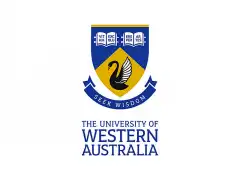Bachelor of Arts - Applied Human Geography
- 3 years
- Duration
- 48,100 AUD/year
- Price
- Rolling admission
- Start
- Rolling admission
- Deadline
- Bachelor
- Degree
- Campus
- Format
- Perth / Australia
- Location
Program description
In the face of escalating inequality and global environmental change, building sustainable and dynamic communities and economies is crucial. Human Geography, which studies how historical, economic, political, demographic, social, and environmental forces impact life in different areas, is well-suited to handle these major issues.
You will learn about the complex, intertwined dynamics that shape human activity in cities and regions at global and local scales in this course. Learn analytical, technical, and communicative abilities to solve important human and environmental policy issues. Experience in data collection, analysis, and interpretation, including Geographic Information Systems and remotely sensed data, will support analysis of multi-scalar urbanization, regional economic transition, population change, and climate change adaptation. Course graduates have many career options due to Human Geography's unique focus on intersecting processes, applied, field-based learning, technical and critical skill development (such as spatial data analysis), and real-world policy problems.
Career paths include policy roles in government agencies and departments that oversee community development, regional development and planning, local governance, and resources; private firms and consultancies that specialize in spatial, social, economic, and demographic data analytics; and not-for-profit community, aid, and development sectors nationally and globally.
Program structure
It is strongly recommended that students take their units in the sequence outlined below. In particular, GEOG2202 should be taken in second year.
Level 1
Core (take all units — 12 points):
- GEOG1104 Disasters! (6)
- GEOG1107 Global Human Inequality (6)
Level 2
Core (take all units — 12 points):
- GEOG2203 Regions in Transition (6)
- GEOG2206 Population Change: Debates and Controversies (6)
Option (take unit(s) to the value of 6 points):
- GEOG2201 Geographic Information Systems (6)
- GEOG2202 Reading Landscapes: People and Processes (6)
Level 3
Core (take all units — 18 points):
- GEOG3308 Climate Change: Policy and Practice (6)
- GEOG3311 Geographies of Economic Development (6)
- GEOG3312 Migrants, Refugees and Borders (6)
Price
- Tuition fee — 48,100 AUD per year.
A standard full time enrolment of 48 points per year equals 1 EFTSL (1 EFTSL is the Equivalent Full Time Study Load). If you enrol in more or less than 48 credit points per year, your yearly annual fee may be different. Tuition fees are reviewed annually and are subject to increase, as outlined in the UWA Acceptance Contract.
Requirements for applicants
To be considered for admission to this course an applicant must have
- achieved an ATAR of at least 75, or equivalent as recognised by UWA or
- an assured pathway offer or
- achieved a score of at least 100 in UWA's experienced based entry assessment or
- a place in a relevant UWA access program.
English competency
- Minimum overall IELTS score of 6.5, with no band less than 6.0.
For more information on requirements, please contact your Edumapple manager.
About the university

With a founding purpose to "advance the prosperity and welfare of communities," the University of the State was established in 1911 and opened its doors in 1913 to a small student body of 184. More than 28,000 students hailing from 115 different countries are now enrolled.
In the realms of education, research, and student success, UWA has been at the forefront of groundbreaking innovations since its inception. However, a university is more than just a place to get a degree and do research.
Throughout Western Australia, the country, and the globe, UWA has played an important role in advancing knowledge, culture, and the economy for over a century.
As the sole institution in Western Australia to be ranked in the top 100 globally, UWA has earned praise for its creative curricula, strong ties to local businesses, dedication to the student experience, and groundbreaking research.
Choosing to study at UWA means becoming a member of a community that has a reputation for leading good change, both locally and globally. You will also become part of a network of dedicated and innovative leaders who are determined to make a difference.





